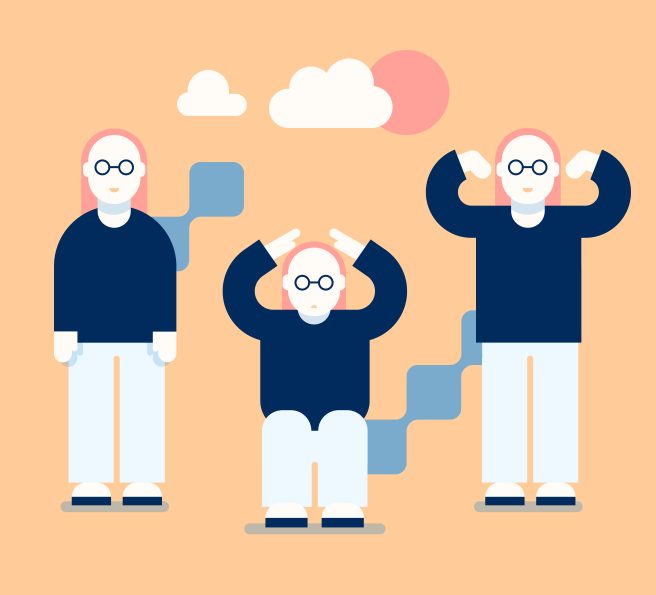From 2010 till 2020, scientific publications on resilience increased by over 87%. The psychological phenomenon is apparently of great public interest, and we can assume that with the Covid pandemic happening from 2020 on, research as well as media coverage on resilience grew even further. Resilience however doesn’t have its origin in psychology, but in material science: The term is used to describe a material that gets back into its original shape after experiencing change – a soft foam ball or rubber for example have very high resilience, whereas glass and ceramics have very low resilience.
Transferred to psychology and the human mind, resilience means the ability to deal with burden and stress. The authors of a report on resilience research published in 2015 define psychological resilience “as a dynamic [lifelong] psychosocial process through which individuals exposed to sustained adversity or potentially traumatic events experience positive psychological adaptation over time.”










